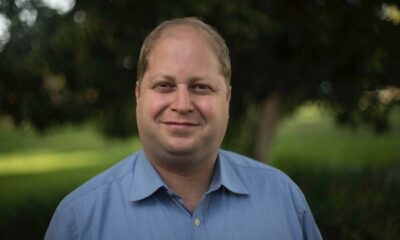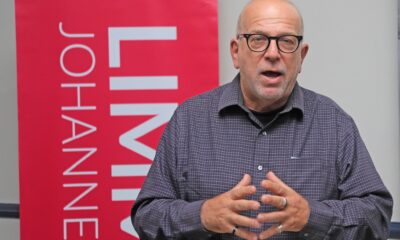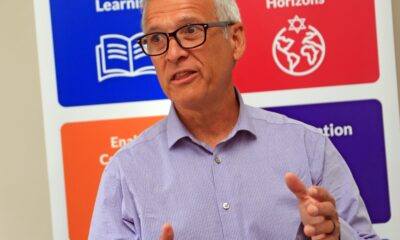
Featured Item

US antisemitism on the uptick with social media
As many as 24% of Americans are antisemitic, Steven Windmueller, emeritus professor of Jewish communal studies at the Hebrew Union College in Los Angeles and specialist on American Jewish political behaviour, told an audience at Limmud in Johannesburg on 23 August.
Windmueller said the Anti-Defamation League maintains that this is far higher than before, even compared to periods in which antisemitism was rampant in the United States (US).
“We saw in the 1960s, 1970s, and 1980s that antisemitism disappeared in many ways,” said Windmueller, “But now, we’re witnessing a radical jump. Especially among Gen Zs and millennials, who are showing the greatest signs of being antisemitic.”
According to a study conducted by the Pew Foundation in 2020 and then verified in 2023, “Nine out of 10 American Jews worry about antisemitism in 2023,” Windmueller said. “However, if you had asked this question before, that number would have been far less – almost 75%.”
“In the period from 2015 to 2024 we have seen this extraordinary recalibration on the part of American Jews about their fears, concerns, and behaviours,” he said, pointing out that nearly half of American Jews no longer wear items that identify them as Jewish.
Antisemitism in the United States has been rising consistently in recent years, going from 912 reported incidents in 2014 to 8 873 incidents in 2023.
“We began to note the rise of antisemitism in 2010. We believe a factor was the election of Barack Obama as US president in 2008. Over the two years following his election, more than 1 000 new hate groups were born – militant groups, white supremacists, and various other groups focused on ‘taking back America’,” Windmueller said. “This was the first African American elected to the presidency of the US. It infuriated and challenged the far right, and led to the organisation of hate movements that we would see with these groups.”
More concerningly, Windmueller said, young Americans from the ages of 18 to 35 were more likely to be anti-Jewish compared to older generations.
“This is concerning to the American Jewish establishment. Because it tells us that something has gone awry. Young people have different perspectives and views about Jews, Israel, and Judaism to their parents or grandparents. There are several reasons why, such as distrust in institutions and the pervasiveness of social media. Certainly, the events since 7 October 2023 haven’t helped. They are much more deeply embedded in society than we initially thought.”
Windmueller said in the US campus scene, out of 147 universities, only 10 created civil unrest, and no more than 20 000 people were involved in antisemitic encampments and protests.
“In reality, the anger directed at Israel, in support of the Palestinians, and in anti-Jewish and anti-Zionist sentiment is relatively small in terms of participants but large in impact,” he said.
One of the reasons for the rise in antisemitism among Gen Zs and millennials is the lack of civic education in America, he said. “American kids are growing up with less information about their society – the groups in their society and how societies in the US are designed to work.”
The way young people get their information is also problematic as in social media, the truth and facts aren’t defined. This is “changing the equation of what constitutes reality, truth, and information that needs to be understood about any group”, Windmueller said. “But in this case, we see it with highly negative attitudes to Jews. And this is particularly concerning because it’s a younger population that will replace, lead, and be the change agents in society in the future.”
However, all is not lost, he said. In a study done by the American Jewish Committee this year, Americans in general started to say that antisemitism was a serious concern. Though Jewish communities around the world may feel alone in this trend, “non-Jews are as conscious of the rise of hate and antisemitism. In many cases, they see it as problematic, not only to the Jewish community but to society as a whole.”
Americans need to start “preparing our kids going off to college, going into public education about what to expect and how they need to respond to acts or actions taken against them, Jews, Israel, or Zionism. It requires a lot of retooling and reorganising of our community in ways that will figure out how best to manage a new but very real challenge. And we’re going to have some very tough conversations moving forward,” Windmueller said.
“On 7 October, we woke up to realise that many of the allies we once perceived as part of the coalition that Jewish organisations were connected to aren’t there. They didn’t show up on 7 October. That means there’s a good deal of work to be done to rebuild community relations with various groups in the Latino, African American, Asian American, Protestant, and Catholic worlds, and other circles. And we need to figure out what will make people feel safe,” he said.










